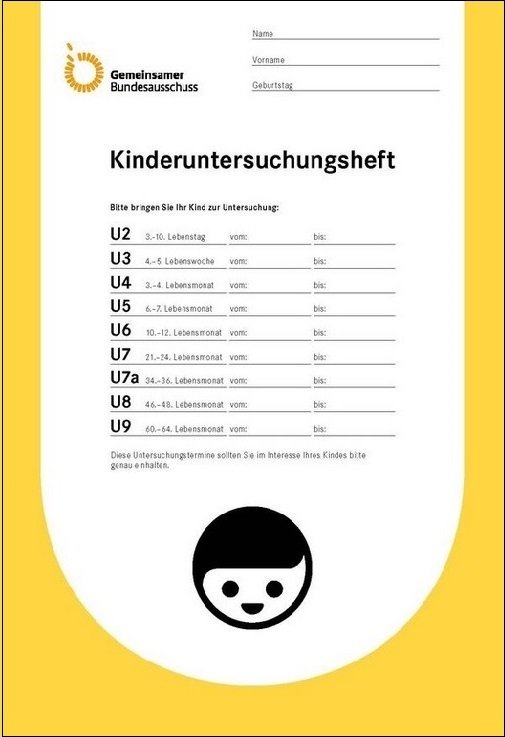Baby's first weeks: Newborn check-ups

Three screening tests are offered for newborn babies by the time they reach the age of five weeks. In Germany these are part of a series of standard check-ups referred to in German as “U-Untersuchungen.” They are done to check that the baby is healthy and developing normally.
At each check-up, the child is measured and weighed, and the doctor gives them a thorough physical examination. The goal of these check-ups is to detect any illnesses or developmental disorders in order to treat them in time. The check-up results are recorded in a special booklet, referred to as the gelbe Heft or “yellow booklet” because of its color.

